
Platos Laws
STUDIES IN CONTINENTAL THOUGHT
John Sallis, editor
Consulting Editors
Robert Bernasconi
Rudolph Bernet
John D. Caputo
David Carr
Edward S. Casey
Hubert Dreyfus
Don Ihde
David Farrell Krell
Lenore Langsdorf
Alphonso Lingis
William L. McBride
J. N. Mohanty
Mary Rawlinson
Tom Rockmore
Calvin O. Schrag
Reiner Schrmann
Charles E. Scott
Thomas Sheehan
Robert Sokolowski
Bruce W. Wilshire
David Wood
EDITED BY
GREGORY RECCO
AND
ERIC SANDAY
Platos Laws
Force and Truth in Politics
INDIANA UNIVERSITY PRESS
Bloomington and Indianapolis
This book is a publication of
Indiana University Press
601 North Morton Street
Bloomington, Indiana 47404-3797 USA
iupress.indiana.edu
Telephone orders 800-842-6796
Fax orders 812-855-7931
Orders by e-mail
2013 by Indiana University Press
All rights reserved
No part of this book may be reproduced or utilized in any form or by any means, electronic or mechanical, including photocopying and recording, or by any information storage and retrieval system, without permission in writing from the publisher. The Association of American University Presses Resolution on Permissions constitutes the only exception to this prohibition.
 The paper used in this publication meets the minimum requirements of the American National Standard for Information SciencesPermanence of Paper for Printed Library Materials, ANSI Z39.48-1992.
The paper used in this publication meets the minimum requirements of the American National Standard for Information SciencesPermanence of Paper for Printed Library Materials, ANSI Z39.48-1992.
Manufactured in the United States of America
Library of Congress Cataloging-in-Publication Data
Platos Laws : force and truth in politics / edited by Gregory Recco and Eric Sanday.
p. cm. (Studies in continental thought)
Includes bibliographical references and index.
ISBN 978-0-253-00178-8 (cloth : alk. paper)
ISBN 978-0-253-00182-5 (pbk. : alk. paper) ISBN 978-0-253-00188-7 (ebk.)
1. Plato. Laws. 2. Political sciencePhilosophy. I. Recco, Gregory. II. Sanday, Eric.
JC71.P264P54 2012
321.07dc23 2012019903
1 2 3 4 5 18 17 16 15 14 13
Acknowledgments
Thank you to Proceedings of the Boston Area Colloquium in Ancient Philosophy, v. 26. for permission to reprint sections of by Sara Brill.
Platos Laws
Introduction
This volume embodies a cooperative, intensive, and comprehensive interpretation of Platos Laws, a single, massive dialogue that challenges even the hardiest reader. In general, it is useful to focus on a single dialogue because of the sort of thing a Platonic dialogue is. While Platos works certainly deal with common themes in common ways, each dialogue also has something like the integrity of a work of art; it has, so to speak, its own rules. An elaborate dramatic conceit, unique and well-drawn characters, novel images and arguments, all contribute to making the individual dialogue an appropriate object for study. It seemed to us especially appropriate in the case of the Lawswhose mere length sets it apart, as do its unique setting, principal speaker, and fresh take on politicsto undertake a reading in common calculated to bring out what is distinctive about the dialogue.
Sharing the end of reading in common, our essays cover the whole dialogue book by book, and several reflect on it as a whole. Forgoing the aim of complete commentary, the authors were invited to highlight whatever aspects of the text they judged most salient and fruitful. Finally, before final versions were due, authors had access to draft copies of one anothers essays and, to greater or lesser degrees, incorporated responses to one anothers work. All these features, we think, lend the volume an even higher degree of cohesiveness than would come from merely working from a common text. The authors come from diverse backgrounds and even disciplines: philosophy, political science, classics, history, each charting a different path through the vast wilderness of the Laws. While their essays are at least as diverse as their backgrounds, there is nonetheless a theme common to most if not all that can serve as a starting point for introducing the material in this volume.
Partly by comparing other dialogues of Plato (most notably the Republic, of course), and partly through thinking about our own times, the reader of the Laws is bound to consider the idea of a free, rational, non-coercive politics in accordance with the good, which the dialogue at times seems to present as a real possibility and at others as a hopeless delusion or a far-distant promise. Throughout all the dialogues, Plato is attentive to the elusive nature of the good and of our relationship to it, paying special attention to how certain ways of relating to the good uproot us from it, leaving us prey to tyrants within and without; the passions, opinions, and errors that hold sway in our common life and discourse tend to make political life a bloody contest or a bitter disappointment. In the Laws in particular, we see Plato puzzling once again over the task of instituting a community in such a way that it is open to the good, even if it begins as one that might well be harmed by philosophical openness and that in any case has not been well prepared for it by the traditions and practices of its erstwhile progenitors.
As for the Republic, even its Athenian dramatic setting did not provide the most auspicious prospects for a free and rational politics, and Socrates late appeal to a pattern laid up in heaven attests to the remoteness of that hope. The Laws Cretan setting and its aged and hidebound interlocutorsone a somewhat undistinguished Spartan, the other an internally conflicted Cretan, neither naturally well-disposed toward Athenian political innovationdo not appreciably brighten ones hopes. Nonetheless, the nameless Athenian Stranger has been invited, with only a little in the way of subterfuge, to discuss the founding of a new city, and so long as he is there in that capacity, his view of the matter may have some beneficial effect on the progress of the conversation.
But just what truth about politics does the dialogue bring to light? Better: what understanding of political life does the Athenian bring to this conversation? One possible view of the Athenian Stranger is that he behaves more as a rhetorician than as a philosopher and as someone who in some sense fundamentally endorses Kleiniass account of politics as war among people and within the soul, although perhaps the Athenian holds this view reluctantly and sometimes in frustration. Another possibility would be to take the Athenian Stranger more as a philosopher, and see the dialogue as a call to move beyond the occasional endorsements of Kleiniass vision of politics as coercion and deception to embrace a politics of reason and truth. A third possible view would discover in the ambiguity between rational politics and coercion a kind of truth all its own, and in the strife between reason and force something that is simultaneously a threat to and resource for the healthy functioning of laws. In different ways and to different degrees, all of these views are present in the essays collected here, and the collection allows the reader to pose anew both the interpretive questions concerning the Athenians or Platos ultimate views and the general philosophical question of what understanding of politics ought to guide the founding and functioning of our commonwealths.
According to the first of these three types, the Athenian Stranger is willing to put forward a vision of non-coercive politics, but what he ultimately accepts as the underlying truth of the matter is the force and deception that protect political community from its own self-destructive impulses. This is to attribute a degree of strategic deception to the Athenian, whose actions are read as manufacturing political community by coercive means. For example, on this view, the preludes to individual laws and to the laws as a whole are interpreted as bordering on manipulation, even though the Athenian presents them as persuasive speeches intended to educate the community on the need for the laws and their obedience. The preludes have the function of maintaining the community within the parameters of a workable although not ideal, and distinctly not philosophical, political space.
Next page
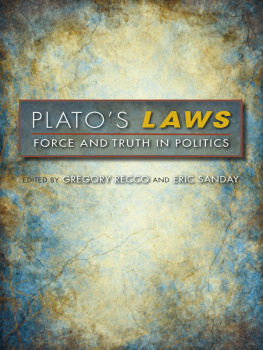
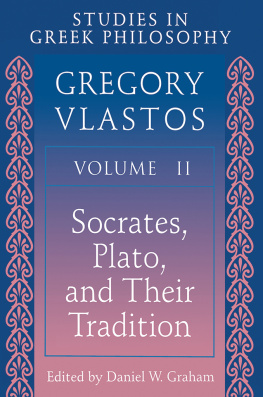
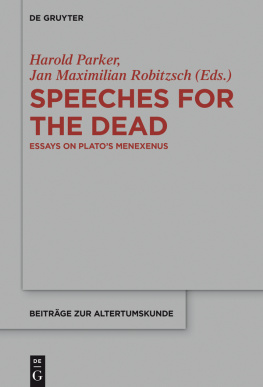
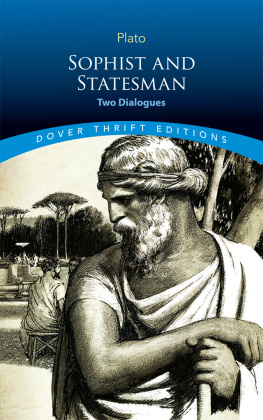
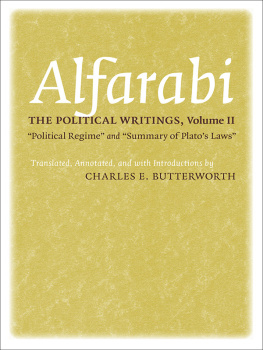
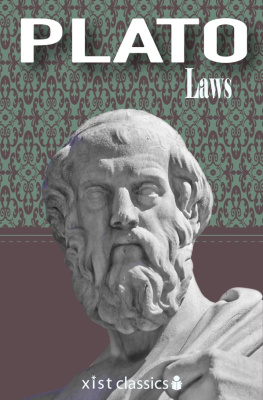
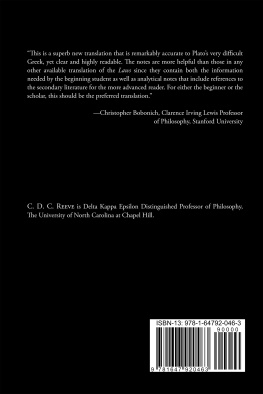
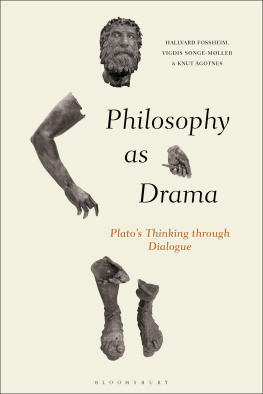


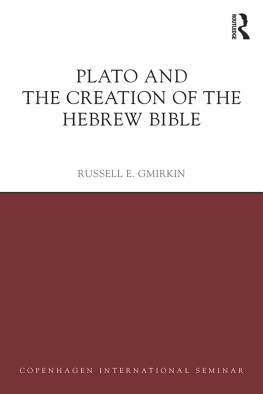


 The paper used in this publication meets the minimum requirements of the American National Standard for Information SciencesPermanence of Paper for Printed Library Materials, ANSI Z39.48-1992.
The paper used in this publication meets the minimum requirements of the American National Standard for Information SciencesPermanence of Paper for Printed Library Materials, ANSI Z39.48-1992.